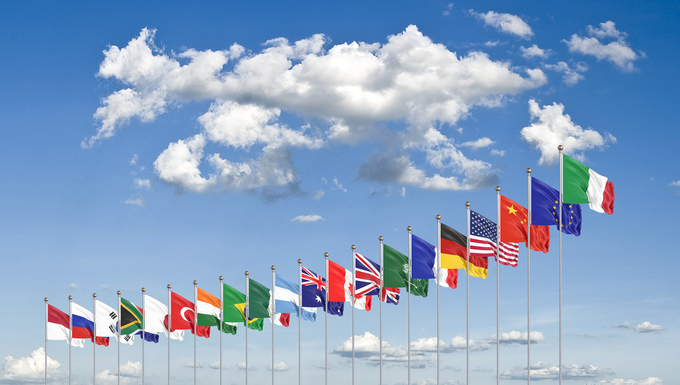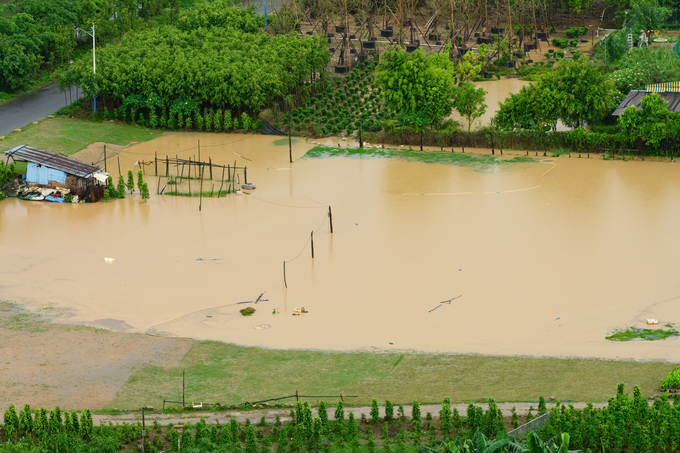 Leaders of the G20 in 20 major countries held a summit in Rome, Italy, from October 30-31. At the meeting, they agreed on the principle of suppressing the Earth's average temperature rise within 1.5 degrees Celsius. It is evaluated as reaffirming the willingness to implement the 2015 Paris Climate Change Convention. In the Paris Climate Agreement adopted in 2015, the international community set a goal of keeping global temperature rise within 2 degrees Celsius and below 1.5 degrees Celsius if possible, compared to before industrialization to prevent disasters caused by global warming. In the joint declaration, the G20 leader stressed the need for meaningful and effective measures and dedication from all countries to achieve the 1.5 degrees Celsius goal. G20 member states agreed that if the global average temperature rise is suppressed within 1.5 degrees Celsius, the impact of climate change such as extreme storms, floods, and sea level rise will be much smaller, and agreed to jointly try to curb the rise within 1.5 degrees Celsius.
Leaders of the G20 in 20 major countries held a summit in Rome, Italy, from October 30-31. At the meeting, they agreed on the principle of suppressing the Earth's average temperature rise within 1.5 degrees Celsius. It is evaluated as reaffirming the willingness to implement the 2015 Paris Climate Change Convention. In the Paris Climate Agreement adopted in 2015, the international community set a goal of keeping global temperature rise within 2 degrees Celsius and below 1.5 degrees Celsius if possible, compared to before industrialization to prevent disasters caused by global warming. In the joint declaration, the G20 leader stressed the need for meaningful and effective measures and dedication from all countries to achieve the 1.5 degrees Celsius goal. G20 member states agreed that if the global average temperature rise is suppressed within 1.5 degrees Celsius, the impact of climate change such as extreme storms, floods, and sea level rise will be much smaller, and agreed to jointly try to curb the rise within 1.5 degrees Celsius.
We are gradually getting used to frequent climate events that go against the seasons with hail and snow falling in early summer and heat waves and droughts continuing during the normal rainy season. Experts even say that these extreme weather changes and abnormal climates are becoming the "new normal" and new standards in our daily lives. Experts warn that even if COVID-19 ends, extreme weather changes and climate disasters in their current state could lead to a more serious global health crisis again.
 However, these extreme weather events are already appearing in countries around the world. For example, for the first time in history, rain, not snow, fell at the highest peak of the Greenland ice sheet, and rainfall equivalent to months drowned a Chinese area in just a few hours. Severe floods in Europe have caused numerous casualties and economic losses. In addition, rising sea levels around the world were cited as a serious concern. Global sea level rose to its highest level in 2021, and the current rate of sea level rise is increasing at its highest rate ever in the past 2,000 years. In addition, greenhouse gas emissions are expected to rise to a record high in the history of global temperature over the past seven years from 2015 to 2021.
However, these extreme weather events are already appearing in countries around the world. For example, for the first time in history, rain, not snow, fell at the highest peak of the Greenland ice sheet, and rainfall equivalent to months drowned a Chinese area in just a few hours. Severe floods in Europe have caused numerous casualties and economic losses. In addition, rising sea levels around the world were cited as a serious concern. Global sea level rose to its highest level in 2021, and the current rate of sea level rise is increasing at its highest rate ever in the past 2,000 years. In addition, greenhouse gas emissions are expected to rise to a record high in the history of global temperature over the past seven years from 2015 to 2021.
The climate crisis can lead to a more serious health crisis. This can lead to the spread of infectious disease in livestock and animals. This is because the sudden warming climate changes the behavioral patterns of animals and plants, increasing the number of more diverse variables and possibilities that humans and animals can contact. Due to the harsh livestock industry, animals are bound to spread pathogens to each other and cause new infectious diseases. The risk of infectious diseases is also exported during the movement of slaughtered animals exported from livestock companies over long distances. Therefore, infectious diseases such as bird flu and foot-and-mouth disease are bound to continue to occur periodically.
Climate change and weather disasters are dangerous for our survival. More than 10% of global deaths are reported to be caused by extreme climate. Fundamentally, it is clear that the resulting diseases and pain will surge without measures and practices to prevent climate crises and weather disasters. It should be remembered that the global health crisis can be repeated endlessly without practical efforts to change each other's perceptions and actions.
